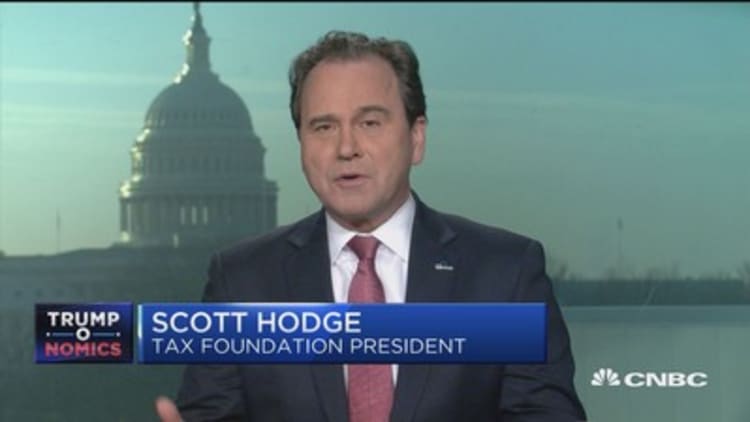
If the GOP tax bill passes as expected, the IRS could spend years trying to prevent people from gaming the new system, said Scott Hodge, president of the conservative-leaning Tax Foundation.
Tax analysts worry that wealthy Americans could reap massive windfalls by simply reclassifying their incomes as so-called pass-through businesses.
The compromise House and Senate Republican tax bill, likely up for a vote this week, includes a pass-through rate cut from 39.6 percent to as low as 29.6 percent, subject to some limitations. The pass-through provision would also provide a 20 percent deduction for the first $315,000 of qualified business income.
Nonpublic pass-through businesses, such as sole proprietors, limited liability companies and partnerships, pay no income tax themselves. Instead their profits "pass through" directly to their owners, who pay tax on them at the individual tax rates.
"The lawyers at the IRS are going to be very busy over the next couple years trying to write rules to prevent that kind of gaming," Hodge said Monday on CNBC's "Squawk Box."
Top Republicans said Sunday they expected the House and Senate to pass the tax package, which overhauls corporate and individual taxes, in time for President Donald Trump to sign it before Christmas. The GOP says the bill will spark business investment, hiring and wage growth, while Democrats claim it's a giveaway to corporations.
Hodge, who spent 10 years at the conservative Heritage Foundation think tank analyzing budget and tax policy, said the new tax bill has much more simplification, especially for low-income people.
"The whole point of tax reform is to remove a lot of these incentives that people build their lives around the tax code. And so that's going to happen," he said. "At the end of the day, this is a better tax system." But he admitted some economists believe the lower the pass-through rate was a mistake.
Hodge also said the lower corporate tax rate, which stands at 21 percent in the new bill compared with the current federal 35 percent rate, will create more economic growth and make the U.S. more competitive.
The Tax Foundation believes the bill could boost GDP 1.7 percent. Though, some argue the tax bill will be a much less stimulative force and lead to ballooning budget deficits and an increase in the national debt.


